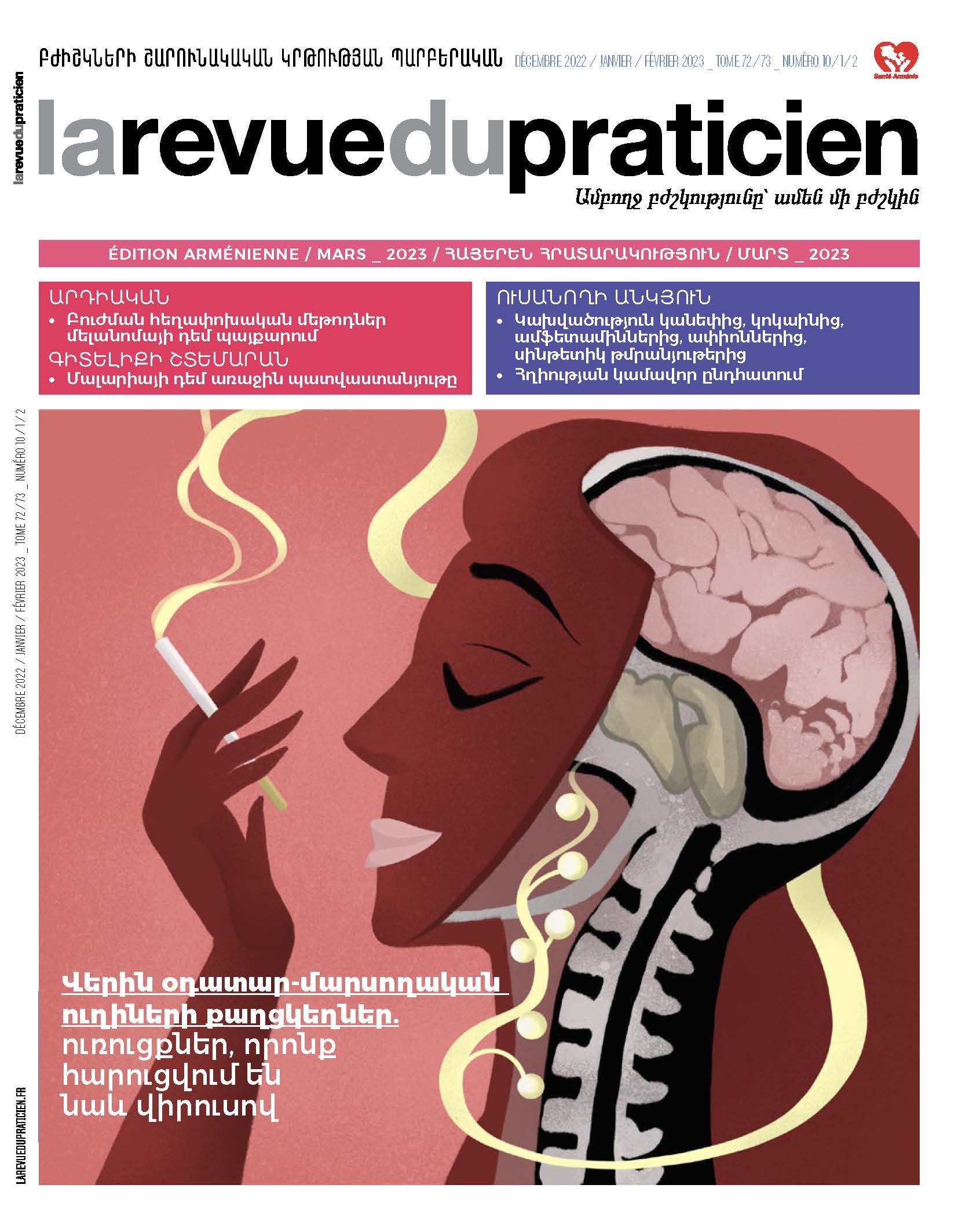HPV vaccination and prevention of oropharyngeal cancers 21
Erwan de Mones Del Pujol.Abstract
Anti-HPV vaccination was proposed in France from 2006 to prevent anogenital cancers, and in particular cancer of the cervix. This vaccination was mainly offered to young girls. However, HPV-induced oropharyngeal cancers are constantly increasing and mainly concern men. Recent datas support a vaccine efficacy greater than 80% against oncogenic serotypes 16 and 18 infections in the oral cavity, and the induction in the oral cavity of a significantly increased level of anti-HPV antibodies and extended over time. Although the prevention of HPV-induced oropharyngeal cancers is not yet included in the indication for this vaccination in Europe, this information can be shared with parents and children with the aim of increasing the adherence rate of girls and boys to HPV vaccination.
